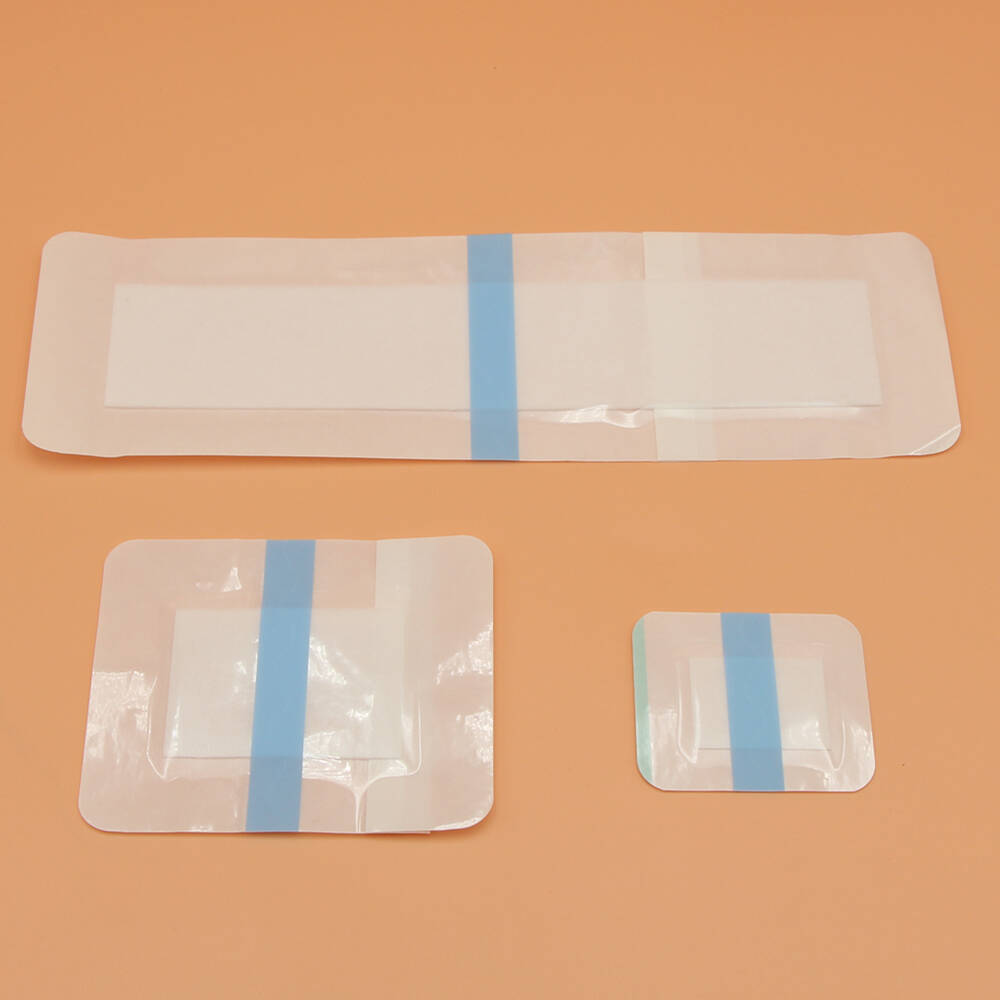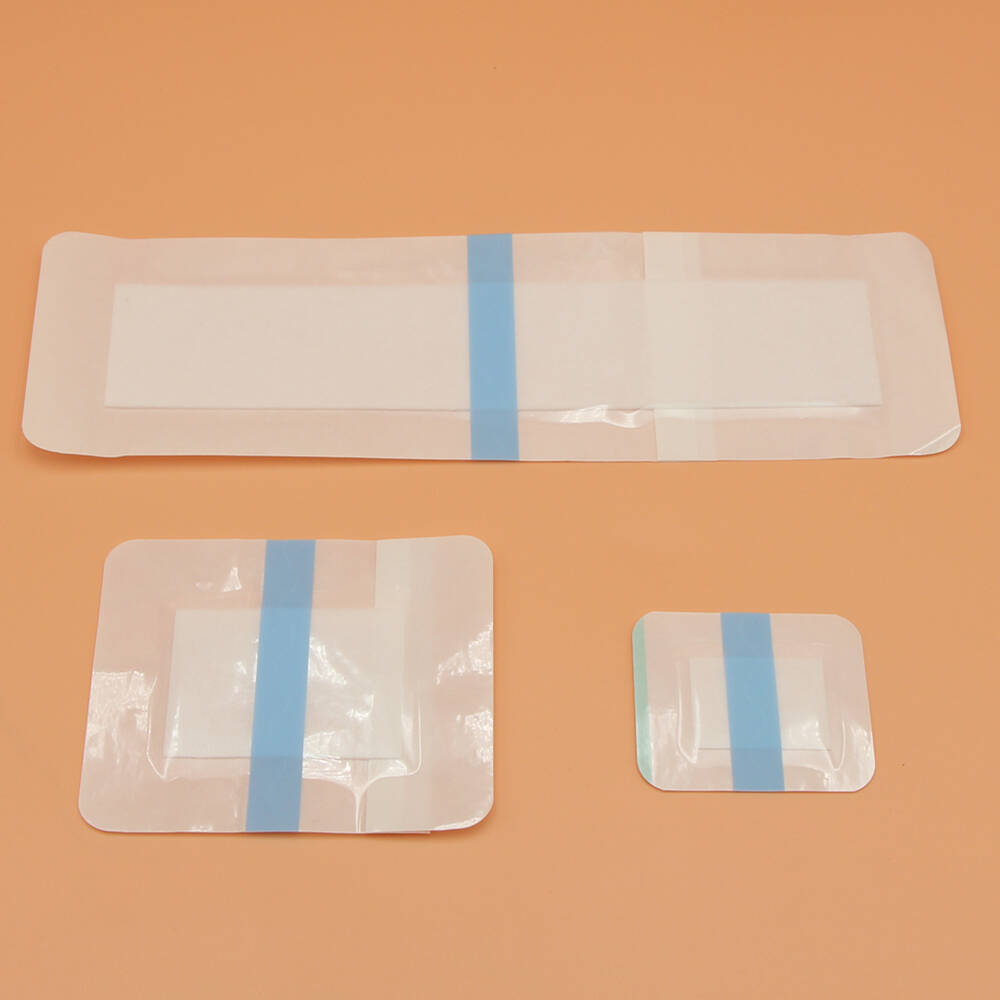Email cannot be empty
Password cannot be empty
Email format error
Email cannot be empty
Email already exists
6-20 characters(letters plus numbers only)
The password is inconsistent
Email format error
Email cannot be empty
Email does not exist
6-20 characters(letters plus numbers only)
The password is inconsistent


Understanding Silver Nitrate Dressing in Wound Care: A Comprehensive Guide
When it comes to wound care, the materials and methods we use can significantly affect the healing process. One such material that has gained attention in recent years is silver nitrate. While many might have heard of it, not everyone knows how it works, its benefits, and how to effectively use silver nitrate dressing for wound care. This blog post aims to demystify silver nitrate dressing and provide a detailed understanding of its role in wound management.
What is Silver Nitrate?
Silver nitrate is a chemical compound that has been used for centuries in medicine, particularly in wound care. It is a colorless crystalline solid that is highly soluble in water. In the context of wound care, silver nitrate is primarily valued for its antimicrobial properties. The compound releases silver ions when it comes into contact with moisture, which helps to kill bacteria and other pathogens that may be present in the wound.
Historically, silver has been used for its antiseptic properties since ancient times. Its effectiveness against a wide range of bacteria makes it a popular choice in modern medicine for treating infected wounds and burns.
How Does Silver Nitrate Work in Wound Care?
The mechanism by which silver nitrate acts in wound care is relatively straightforward. Once applied to a wound, silver nitrate releases silver ions, which interact with the microbial cell walls, disrupting their structure and ultimately leading to cell death. This process not only helps to prevent infection but can also promote faster healing.
Benefits of Silver Nitrate Dressing
Antimicrobial Properties: The primary benefit of silver nitrate dressing is its ability to kill bacteria, fungi, and viruses. This reduces the risk of infection, which is crucial for wound healing.
Reduction of Inflammation: Silver nitrate can also help reduce inflammation in the wound area, promoting a healthier healing environment.
Moisture Management: Silver nitrate dressings help maintain a moist environment, which is essential for optimal wound healing. Keeping the wound moist can accelerate the healing process and minimize pain.
Debridement: Silver nitrate dressings can assist in the debridement process, helping to remove dead tissue and debris from the wound, further encouraging healing.
Versatility: Silver nitrate dressings can be used for various types of wounds, including surgical wounds, pressure ulcers, and burns, making them a versatile option in wound care.

When to Use Silver Nitrate Dressing
Silver nitrate dressing is ideal for use in several situations:
- Infected Wounds: If a wound shows signs of infection (redness, swelling, pus), a silver nitrate dressing can help control the infection.
- Chronic Wounds: Chronic wounds, such as diabetic ulcers or pressure sores, often benefit from the antimicrobial properties of silver nitrate.
- Post-Surgical Wounds: After surgery, applying a silver nitrate dressing can help prevent infection in the healing wound.
- Burns: Silver nitrate is effective for treating burn wounds, providing both pain relief and infection control.
Application Process of Silver Nitrate Dressing
Using silver nitrate dressing is relatively straightforward, but it's essential to follow proper procedures to ensure effective treatment. Here’s a step-by-step guide:
Gather Supplies: You will need silver nitrate dressing, saline solution, sterile gauze, gloves, and scissors.
Prepare the Wound: Clean the wound gently with saline solution to remove any debris or old dressings. This step is crucial to minimize infection risk.
Apply Silver Nitrate Dressing: Place the silver nitrate dressing directly over the wound. Make sure it covers the entire area.
Secure the Dressing: Use sterile gauze or tape to secure the dressing in place. Ensure it is snug but not too tight to restrict circulation.
Monitor the Wound: Check the wound regularly for signs of healing or infection. Change the dressing as recommended by a healthcare professional, usually every 24 to 48 hours.
Follow Up: Regular follow-up appointments with a healthcare provider are essential to monitor the healing process and make any necessary adjustments to the treatment plan.
Potential Side Effects
While silver nitrate dressing has many benefits, it’s important to be aware of potential side effects. Some individuals may experience skin irritation, staining of the skin, or allergic reactions. These side effects are generally mild, but if you notice any severe reactions or if the wound does not improve, it’s important to consult a healthcare professional.
Comparing Silver Nitrate Dressings to Other Wound Care Options
Silver nitrate dressings are just one of many options available for wound care. To better understand their role, let’s compare them to some common alternatives:
1. Hydrocolloid Dressings:
These are adhesive dressings that form a gel-like substance when they come into contact with moisture. While they are effective in maintaining a moist environment, they do not have the same antimicrobial properties as silver nitrate.
2. Alginate Dressings:
Made from seaweed, alginate dressings are excellent for wounds that produce a lot of exudate. They also maintain moisture but lack the antimicrobial benefits of silver nitrate.
3. Foam Dressings:
These are soft, absorbent dressings that provide cushioning and help to manage exudate. However, like alginates and hydrocolloids, they do not possess the antimicrobial properties of silver nitrate.
4. Antimicrobial Dressings:
These dressings are designed specifically to combat infection and may contain various agents like iodine or honey. While effective, they may not be suitable for all wound types and can sometimes cause irritation.
When choosing a dressing, it’s important to consider the specific needs of the wound, including the level of exudate, presence of infection, and the overall condition of the patient.
Conclusion: The Future of Wound Care with Silver Nitrate
In conclusion, silver nitrate dressing plays a significant role in modern wound care. Its ability to reduce infection, manage moisture, and promote healing makes it an invaluable tool for healthcare professionals and patients alike. As we continue to learn more about wound healing and the materials used, silver nitrate dressing remains a reliable option that combines centuries of traditional medicine with modern practices.
Whether dealing with a minor cut or a chronic wound, understanding how to properly use silver nitrate dressing can make a significant difference in the healing journey. Always consult with healthcare professionals to determine the best course of action for your specific needs, and remember that timely care is crucial in preventing complications. With the right approach and materials, healing is not only possible but can also be a smooth and pain-free experience.
In the ever-evolving field of medicine, silver nitrate dressing stands out as a beacon of hope and efficiency in wound care, ensuring that healing is both effective and efficient.

